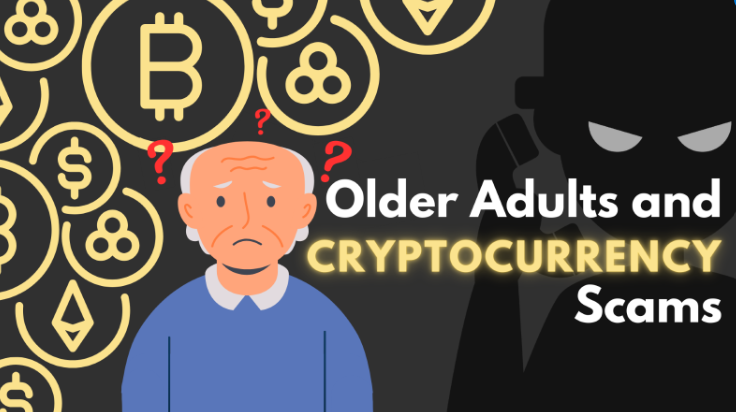- Office of Consumer Affairs and Business Regulation

In the 2024 Fraud Report by the Federal Bureau of Investigation's Internet Crime Complaint Center (IC3), it was reported that older Americans suffered from over $2.8 billion in losses from cryptocurrency scams. As digital currency gains popularity, a rise in scams follows.
Why older adults?
Scammers perceive older adults to have wealth from retirement savings or home equity and assume that when we age, we are not too familiar with modern technology, making any aging adults the ideal target for criminals.
By initiating contact through unsolicited phone calls, impersonating a bank’s financial expert, a government agency representative, or a tech support employee, criminals first gain the trust of the older adults and create a false sense of emotional connection.
Once trust is established, it is easier for scammers to gain access to retirement accounts or other finances. However, many older adults do not report the scams, in fear of losing financial independence or simply because it can be difficult to accept it happened.
What are popular scams involving cryptocurrency?
Older adults aren’t the only targets for criminals. Be aware of the different ways scammers have been tricking people of all ages:
- Fake Apps: Some cryptocurrencies utilize different apps, and criminals have been replicating them. By creating a nearly identical application, users end up sending payments directly to the scammer without realizing.
- Investment Opportunities: This scam is also known as the pig butchering scam, as the scammers, or “butchers,” “feed” the victim with trust and interest before making their “slaughter.” By impersonating a cryptocurrency investor, scammers direct users to a fraudulent website, encouraging them to invest to make money quickly. However, the money isn’t being invested, but rather, just “fattening up” the criminal’s wallet.
- CVC Kiosks: Also known as crypto ATMs, these devices are used to exchange real currency into cryptocurrency. These crypto ATMs look like the traditional bank ATMs, which can make it hard to distinguish them.
Scammers create a false sense of urgency to direct people to a CVC kiosk, claiming it’s to pay a bill or invest in an opportunity. They help the victim deposit money over the phone, talking through each step until the transaction is done. Once this payment is made, it is nearly impossible to reverse.
How can older adults stay safe?
- Never pay in cryptocurrency: When getting an unsolicited phone call demanding payment, double check with your bank before making any transaction, especially online.
- Ask before you act: Contact a trusted family member, friend, or your bank, before responding to any requests for payment. Stay educated on rising scams.
- Report fraudulent activity: If something seems suspicious, call your financial institute or your local police and report the scam. You can also file a complaint with the Internet Crime Complaint Center.
Stay alert and do your research before trusting someone online. By being aware of evolving scams, you can help protect your loved ones and yourself. For more resources, see Cybersecurity for Consumers and the Financial Industry, offered by the Division of Banks.

